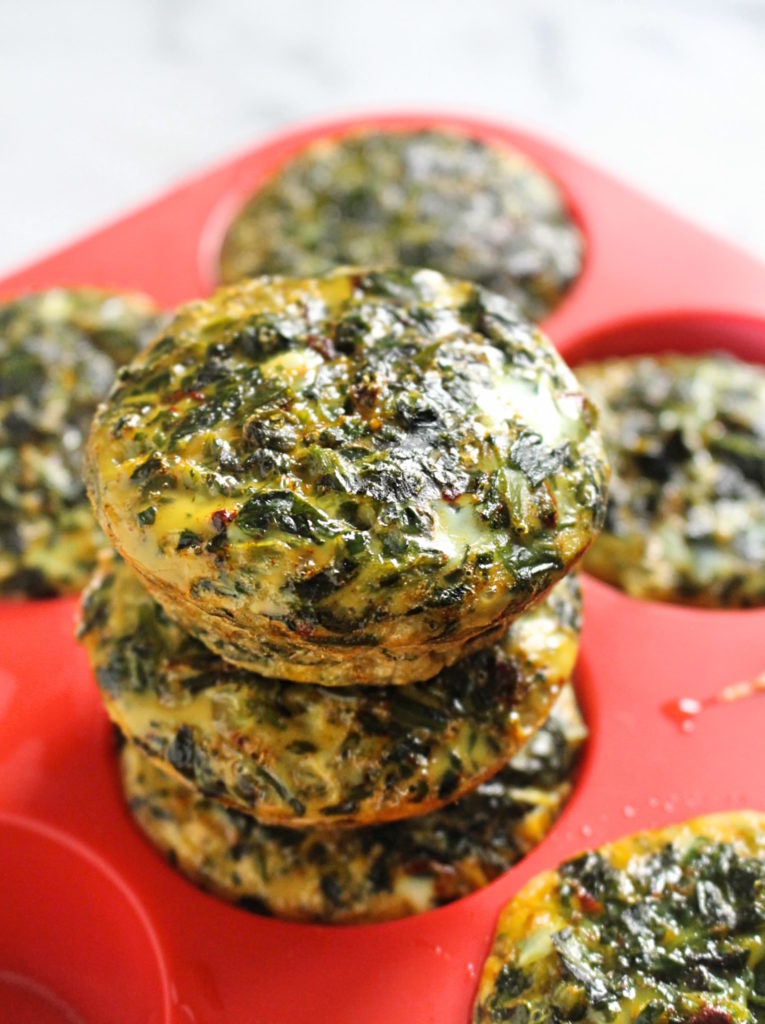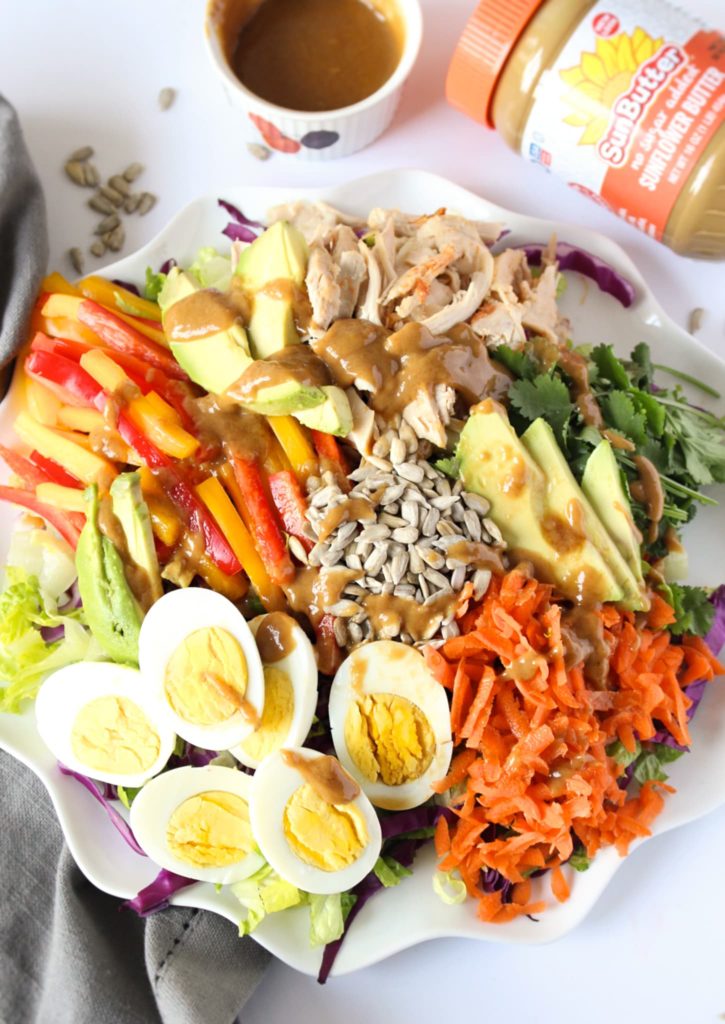Nutrition 101: What You Need to Know About PROTEIN
As I’ve mentioned before, a balanced diet matters. This National Nutrition Month, I’m excited to share a new Nutrition 101 Mini Series to help you discern fact from fiction when it comes to nutrition basics.
We’re starting with PROTEIN! What should you know about this important macronutrient? How much do you need? Here’s what you need to know about protein…
My PVCF combo that I teach to help build a balanced diet starts with protein, and for a good reason – it’s an essential macronutrient and the first step to building a balanced diet. Eating protein with most meals and snacks promotes satiety, muscle recovery, and helps throughout the body.
This post all about protein will cover:
- What is protein?
- What does protein do in your body?
- How much protein do you need?
- What’s the difference between complete and incomplete proteins?
- Where can you find protein?
- Can you eat too much protein?
- Recipes with protein
- FAQ about protein
Here’s what you need to know about PROTEIN…
What is protein?
Protein is an essential nutrient in your body. In fact, from your hair to your toe nails, and nearly everywhere in between, you can find protein!
Protein is made from 20 different amino acids, the building blocks of protein. You can think of protein like legos. Each amino acid is an individual lego piece, but together they build something much bigger, like a castle (the protein).
Like carbohydrates, there are 4 calories per gram of protein. From an energy perspective, this means carbohydrates and proteins are equivalent, but they are metabolized and used differently in your body.
What does protein do in your body?
Since protein is so widespread throughout your body, it has many functions.
Here are just a few roles of protein in your body:
- Building blocks for enzymes that power important biochemical reactions in your bodies
- Components of cell walls to provide structural support
- Part of lean muscle, hair, skin, bones, and nails
- Structural component of hemoglobin, which carries oxygen in your blood
- Antibodies, which fight infections
- Hormones that help your body communicate and carry out key functions
- And more!
But even more, when you eat protein-rich foods, they’re satiating. In other words, it turns off your hunger signals and tells your body that you’re full, thanks to hormonal mechanisms that occur when you eat protein. This is why protein is such an essential component of a balanced diet.
Additionally, protein is digested slower than carbohydrates (but not quite as slowly as fat). Oftentimes when I have clients include more protein in their diets, especially at breakfast, they notice staying full for a longer period of time and even fewer cravings later in the day.
How much protein do you need?
With so many functions that you may not have known about, you may wondering how much protein you you need to eat on a daily basis.
The Daily Reference Intake for protein is 0.8 grams per kilogram of body weight. (To get your weight in kilograms, divide your weight in pounds by 2.2.)
This means a 150 pound person would require 54.5 grams of protein per day.
A 200 pound person would require 72.7 grams of protein per day.
A 3 ounce portion of chicken contains 25 grams of protein, so you can see that it’s fairly easy to meet your daily protein needs.
In fact, many Americans overdo it when it comes to protein, since it can add up so easily!
But keep in mind that the above formula is just a guideline. Your individual protein needs are impacted by your health status, activity level, age, and more. If you want an individualized recommendation, be sure to consult with a qualified registered dietitian.
Where can you find protein?
Both animal and plant foods contain protein.
The most obvious sources of protein are animal foods. These include meat, poultry, seafood, eggs, and dairy products. Animal proteins are considered complete proteins. This means they contain all 9 essential amino acids (or the amino acids your body cannot make on its own).
Here’s how some popular animal sources of protein stack up:
- 3 oz chicken: 25 grams
- 3 oz salmon: 19 grams
- 1 large egg: 6 grams
- 1 cup milk: 8 grams
- 6 oz Greek yogurt: 15 grams
One of the biggest nutrition myths I hear as a dietitian is that you can’t meet your protein needs from a plant-based diet – FALSE! Many plant foods, including beans, legumes, nuts and seeds, and vegetables, contain protein. Yes, vegetables do contain protein!
Many plant-based sources of protein are considered incomplete proteins, meaning they do not contain all 9 essential amino acids your body needs. HOWEVER, by eating a variety of foods and protein sources, you’re likely consuming combinations of complete proteins throughout the day. You may hear that you need to consume complete proteins at every meal, and this just isn’t true.
When you digest protein, your body breaks it down into individual amino acids. If you eat an incomplete protein for breakfast and another for lunch, it’s likely you’re eating all 9 essential amino acids your body needs throughout the course of the day. That’s why your overall diet is what’s most important – not 1 meal or snack!
Here’s how some plant foods stack up when it comes to protein:
- 1/2 cup black beans: 7.5 grams
- 1/4 cup hummus: 5 grams
- 1 ounce mixed nuts: 6 grams
- 2 tablespoons peanut butter: 7 grams
- 1 tablespoon chia seeds: 3 grams
- A serving of tofu: 9 grams
- 1 cup raw broccoli: 2.5 grams
As you can see, a serving of plant protein typically has less protein than animal foods, which is why it’s so easy to overdo it on protein with a heavily carnivorous diet. While there’s nothing wrong with eating animal proteins (I recently started eating meat again!), it’s important to keep your portion size in mind. The recommended 3-4 ounces per meal is only about the size of a deck of cards! Most restaurants serve double, if not triple, this recommended serving size.
Can you eat too much protein?
Speaking of over-consumption… Like any macronutrient, it is possible to over-consume protein. With the growth of low carb eating plans, like paleo, high protein diets are more popular than ever. But the long-term impact on health (for the general population) is still unknown.
For example, some studies show that excess protein can be detrimental to bone health, but others show no adverse effects of a high protein diet on bone health. For some populations, a high protein diet can be beneficial. A high protein diet can help lower blood sugar in individuals with type 2 diabetes and some evidence points to a high plant protein diet lowering blood pressure.
It’s best to consult with a registered dietitian to determine the amount of protein that is best for your needs.
Protein-Packed Recipes
As you can see, protein is so important, so how will you make sure you meet your daily requirements?
Try some of these delicious protein-packed recipes…
2-Ingredient Egg Muffins
Asian-Inspired Cobb Salad
Zucchini Turkey Taco Boats
Questions? Comments? Did you enjoy learning what you need to know about protein? I’d love to hear from you!
Stay tuned for Part 2 in this Nutrition 101 Mini Series, all about CARBS!
XO






 Hi there!
Thanks for stopping by! I'm Chelsey, an online Registered Dietitian, recipe developer, budding photographer, and coffee addict! My mission is to help you feel good through food by answering the question "What should I eat?" Let's make nutrition approachable!
I hope you enjoy my personal collection of simple, healthy, food allergy friendly and nutritiously delicious recipes, plus tips and tons of tricks that will help YOU live a nutritionally-balanced life! I look forward to getting to know you better...
Hi there!
Thanks for stopping by! I'm Chelsey, an online Registered Dietitian, recipe developer, budding photographer, and coffee addict! My mission is to help you feel good through food by answering the question "What should I eat?" Let's make nutrition approachable!
I hope you enjoy my personal collection of simple, healthy, food allergy friendly and nutritiously delicious recipes, plus tips and tons of tricks that will help YOU live a nutritionally-balanced life! I look forward to getting to know you better...







